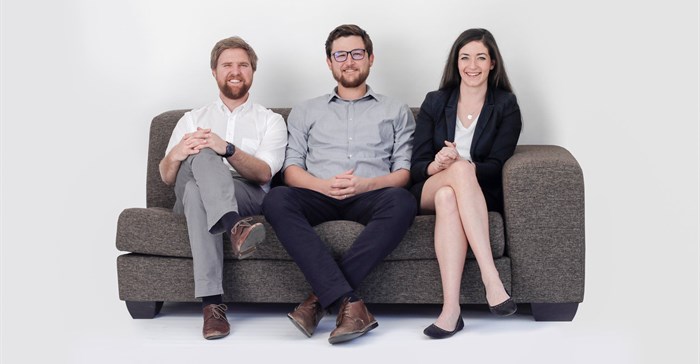
While, now, forming part of the Demographica family, CSO+P will retain its independence and brand and comprises of Beth Strauss, Wynand Coetzer and Werner Odendaal.
"We help businesses understand their desired future, the behaviours required to make that future a reality and the systems required to support and enable those behaviours," says Coetzer. The trio has already delivered significant strategic work and management consulting services to current Demographica clients including MTN, Bryte, Old Mutual, Yes4Youth, Investec, Nedbank and the V&A Waterfront.
Here, Strauss, Coetzer and Odendaal elaborate on the company's three-pronged strategy and what they call their "strategy without strings" and what value this holds for its clients.
In its simplest form, we offer strategy without strings. Clients are looking for objective strategy that is developed without a bias for a specific kind of solution. Our strategies and solutions aim to serve the client’s business as opposed to feeding our executional arm – which we don’t offer.
This approach is then applied to what we call “market-led business advisory”. In every business, there are parts of the value chain that engage directly with the customer/client – market-led functions. Those are the functions – which touch the customer/client directly – that we focus on, and is essentially an outside-in approach – taking the customer into the organisation, as opposed to taking the organisation to the customer.
This can take the shape of a marketing and communications requirement, market positioning, a customer experience requirement or even an internal engagement requirement.
The partnership actually started in January 2018 when we were running a small strategic consultancy and were called in to assist Demographica on a project for one of their bigger clients. The project was a success, so more projects followed. It soon became clear that this is a mutually-beneficial relationship, and that is when the discussions around a more formal partnership started taking shape as the chemistry was there from day one.
What excites us most about this partnership are the opportunities we have been exposed to because of Demographica’s impressive network and reputation. Second, to that, it is a great feeling to be backed and encouraged by some of the leading minds in the industry.
The three types of thinking are futures, behaviour and systems. This is not a standardised methodology we use to solve every problem, but this approach helps us understand the actual task-at-hand.
We start with a desired view of the future: What are we working towards and what kind of future do we want to create? Most businesses and their owners/managers tend to be driven by short-term results – which leads to reactive and tactical thinking, never fully taking into consideration how this influences their desired future state.
It is also important to take into consideration how the external world will change in the future and how the brand or organisation fits into that future, and what they can influence or create themselves. Once that future state is established it becomes easier to understand the kinds of behaviour required to make that future a reality. These behaviours can be internal (what my staff and the team do) as well as external (what my customers or clients need to do).
Behaviour is never straightforward or logical, so it is always a challenge to take into account the best and worst of people and their behaviours. Lastly, once we know what the future looks like and the required behaviours, it becomes easier to build the systems that will make this work.
As an example, many companies invest heavily in technology development without having a clear picture of where the business is going in the long-term and the behaviours required – the technology leads and it is expected that the customer or client will adjust their behaviour accordingly. This is seldom the case. Understand the behaviour before you implement the technology (systems).
Specifically, in relation to the above, the value lies in the ability to imagine the future. Once you have imagined that future clearly, it becomes something a business or brand can buy into and believe in.
It becomes real, not just a pipe dream. What then follows is the practical and actionable plan that proves this future is not just another “vision statement” – it becomes something the enter organisation can rally toward, a fire to huddle around. The ability to clearly imagine the future is immensely powerful.
Because we don’t use strategy as a means to an end, we are in a position to offer honest strategy that serves the client’s needs above our own. We don’t benefit from whatever we recommend, and so far the feedback from clients has been positive.
Most agencies and even some consultancies develop strategic solutions that act as a pipeline for their own capabilities further down the line (that might be creative capabilities, development), but because we do not offer that as a service the client can rest assured that our recommendations do not have an underlying agenda.
We are really excited about establishing the brand alongside our partners (Demographica) and growing the business in the local market. We are working on some really exciting stuff that takes people into the strategic equation.
What we’ve seen is that strategic development tends to happen a lot faster than people development in organisations – which means the strategy is always a few steps ahead of the skills you have access to. We are looking at building a tool that can help organisations close the gap between the complexity of their strategy and the capabilities of their people – which increases the chances of that strategy being adopted and executed properly.
Watch this space!
